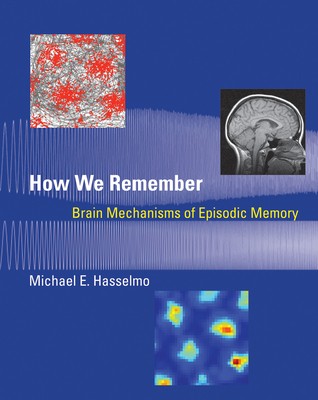
- We will send in 10–14 business days.
- Author: Michael E Hasselmo
- Publisher: MIT Press
- ISBN-10: 026252533X
- ISBN-13: 9780262525336
- Format: 17.2 x 22.3 x 2.1 cm, softcover
- Language: English
- SAVE -10% with code: EXTRA
Reviews
Description
A novel perspective on the biological mechanisms of episodic memory, focusing on the encoding and retrieval of spatiotemporal trajectories.Episodic memory proves essential for daily function, allowing us to remember where we parked the car, what time we walked the dog, or what a friend said earlier. In How We Remember, Michael Hasselmo draws on recent developments in neuroscience to present a new model describing the brain mechanisms for encoding and remembering such events as spatiotemporal trajectories. He reviews physiological breakthroughs on the regions implicated in episodic memory, including the discovery of grid cells, the cellular mechanisms of persistent spiking and resonant frequency, and the topographic coding of space and time. These discoveries inspire a theory for understanding the encoding and retrieval of episodic memory not just as discrete snapshots but as a dynamic replay of spatiotemporal trajectories, allowing us to retrace our steps to recover a memory.
In the main text of the book, he presents the model in narrative form, accessible to scholars and advanced undergraduates in many fields. In the appendix, he presents the material in a more quantitative style, providing mathematical descriptions appropriate for advanced undergraduates and graduate students in neuroscience or engineering.
EXTRA 10 % discount with code: EXTRA
The promotion ends in 18d.02:22:54
The discount code is valid when purchasing from 10 €. Discounts do not stack.
- Author: Michael E Hasselmo
- Publisher: MIT Press
- ISBN-10: 026252533X
- ISBN-13: 9780262525336
- Format: 17.2 x 22.3 x 2.1 cm, softcover
- Language: English English
Episodic memory proves essential for daily function, allowing us to remember where we parked the car, what time we walked the dog, or what a friend said earlier. In How We Remember, Michael Hasselmo draws on recent developments in neuroscience to present a new model describing the brain mechanisms for encoding and remembering such events as spatiotemporal trajectories. He reviews physiological breakthroughs on the regions implicated in episodic memory, including the discovery of grid cells, the cellular mechanisms of persistent spiking and resonant frequency, and the topographic coding of space and time. These discoveries inspire a theory for understanding the encoding and retrieval of episodic memory not just as discrete snapshots but as a dynamic replay of spatiotemporal trajectories, allowing us to retrace our steps to recover a memory.
In the main text of the book, he presents the model in narrative form, accessible to scholars and advanced undergraduates in many fields. In the appendix, he presents the material in a more quantitative style, providing mathematical descriptions appropriate for advanced undergraduates and graduate students in neuroscience or engineering.


Reviews